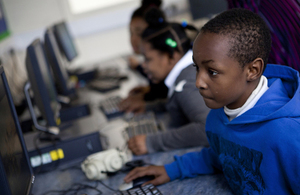Nowadays children are busier than ever- they have increased studies, busy family and social schedules all whilst trying to ace their exams and get into their choice of university. Sometimes life can get so hectic that it’s easy for kids to fall behind or need some extra study time. Individual one-to-one tutoring can be extremely beneficial and can help build academic success in the future. As parents, it’s important to recognise if your kids do need the help of a tutor, so we’ve put together few key things to keep an eye out for.
Slipping grades
If you feel as though your child’s grades are slipping or their teacher has noticed a lack of focus, it’s probably an indicator that a private tutor may be helpful. If this is the case, consulting with teachers is vital as they’ll be able to highlight what your child needs to work on. Gathering this information will also be helpful for a tutor and ensure they concentrate on the areas your child’s struggling with the most.
Unable to manage time
If your child is constantly putting off completing homework or working on projects, it may be because they’re struggling to keep up with their workload. Constant procrastination can also indicate other larger issues such as lack of time management skills and bad study habits. Hiring a tutor can be a proactive way to provide your child the assistance they need. At Tutor Doctor our tutors specialise in improving study habits and work with your child to develop essential skills such as time management and organisation.
Lacking confidence
If you notice your child is really lacking confidence when it comes to their performance at school or they’re getting stuck on certain skills time and time again, hiring a tutor may be beneficial. Not having confidence to participate in the classroom not only makes kids feel rubbish, but often demotivates them further. A tutor will work with your child to help them become self-assured and build up the knowledge and confidence in the areas they’re lacking.
Being confused
Sometimes kids underperform because they’re not understanding the work. If you see that your child is repeatedly puzzled by their assignments or certain concepts, it may be because they’re not keeping up with their grade expectations. Make sure you talk to them about whether they’re finding the work a little tricky or if they don’t understand at all. This will help you see if their homework is just testing their knowledge, or if some extra tutoring time is needed to help get their grades back to where they should be.
How can Tutor Doctor help?
Here at Tutor Doctor we offer an affordable, one-to-one home tutoring service that is tailored to suit your child’s abilities, learning style and personality. More importantly we aim to help students grow into independent learners and teach them key X-skills such as organisation and time management that will be sure to stay with them throughout their adult life.














